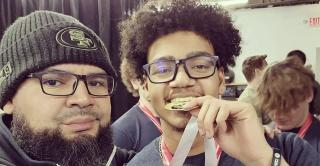
Learning Objectives/Outcomes Assessment
Central Faculty in all departments are encouraged to participate in Central’s General Education Learning Objectives/Outcomes Assessment initiative. Participation can come from faculty teaching designated GenEd courses as well as those that are not designated GenEd courses. Currently, our GenEd assessment model addresses six of Central’s Learning Objectives/Outcomes, namely Scientific Reasoning (LO #3), Critical Thinking (LO #4), Written Communication (LO #5), Quantitative Reasoning (LO #6), Information Literacy (LO #7), and Civic Engagement (LO #10).
Since 2014, many faculty have submitted student work (artifacts) from their courses as part of this assessment initiative. Below, please find a series of FAQ’s which addresses how you can get involved in this important campus-wide initiative.
Why should I participate?
- Contribute to the university’s NECHE reporting regarding assessment of General Education learning objectives/outcomes;
- Allows you to utilize and/or adapt existing assessment methods for assessing your students, if you so choose.
How do I know if I can participate?
The criteria for participation are:
- Teach a course that addresses one or more of the key Learning Objectives/Outcomes of Critical Thinking, Written Communication, Quantitative Reasoning, Information Literacy, and/or Civic Engagement; and/or Scientific Reasoning.
- Supervise an internship or independent study in which student work involves service-learning, community-based research or service within the community (Civic Engagement).
Which student work should I choose for submission?
We collect artifacts from Freshmen through Senior-level students. Please submit all student work. The assessment is for undergraduate students only. The Office of Institutional Research and Assessment (OIRA) can easily identify if work from graduate students has been included and will sort the artifacts accordingly.
YES, I wish to participate. What do I do?
There are four basic steps for faculty:
- Review the Learning Objectives/Outcomes rubrics to identify if you have an existing assignment that aligns with one (or more) of the six Learning Objectives/Outcomes (Use hyperlinks below to access rubrics and cheat sheets.) Note some assignments lend themselves for alignment with more than one learning outcome at a time; Critical Thinking and Written Communication are good examples.
- Ensure the instructions for the assignment specifically instruct students to address at least three of the categories in the rubric. If your assignment does not address each rubric category, please consider how assignment modifications might ensure better alignment with the categories. The Academic Assessment Committee (AAC) recognizes that not all assignments can or should be aligned to fit the rubric, in which case, we still encourage you to submit your cheat sheet. Note: Academic Assessment faculty involved in the campus-wide GenEd Assessment Initiative are available to assist you with the alignment process. Contact Martie Kaczmarek, Assessment Coordinator in Office of Institutional Research and Assessment, for assistance at 860-832-2304.
- Complete and return rubric cheat sheet to Martie Kaczmarek via email or interoffice mail to OIRA, Davidson 125.
- Throughout the semester, collect assignments from students and provide an electronic copy of the completed student assignment (artifact) and the assignment instructions to Martie Kaczmarek by the end of the semester. This can be done by email, Blackboard Learn, Dropbox, etc. OIRA will de-identify all submitted assignments ensuring that any reference to the instructor, course, and/or student name will be removed or de-identified.
WAIT! Am I on my own or is there someone who can help me?
Absolutely, you are not on your own! Martie Kaczmarek, Assessment Coordinator and Yvonne Kirby, Associate Vice President of Planning & Institutional Effectiveness are ready to help as are the faculty on the Academic Assessment Committee. In addition, Dr. Cassandra Broadus-Garcia, Associate Professor of Art, is available to help with your Civic Engagement participation and Ms. Martha Kruy, Librarian, can assist you with Information Literacy participation.
If you would like more information, have further questions or need assistance, please call Martie Kaczmarek in the OIRA at 832-2304 or email.
We look forward to having you join others on campus in this campus-wide initiative! Thank you!


